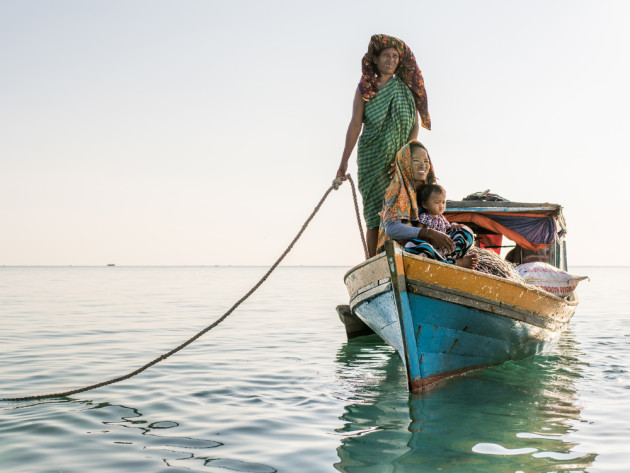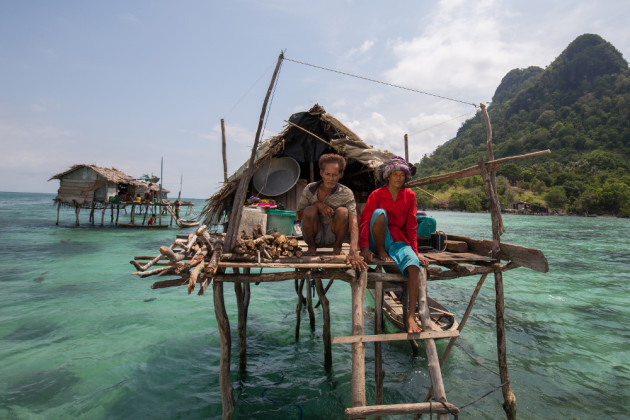Borneo, best known for its pristine beaches and ancient, biodiversity-rich rainforests including orangutans and clouded leopards, is also home to a unique community of stateless citizens who are born, live, and die at sea.
Recently, Perth-based photographer, Mark Lehn visited the Sabah region of Borneo to capture a unique community of Sea Gypsies known as Bajau Laut. Traditionally, these boat-dwelling nomadic groups, known more broadly as Sama-Bajau, are from the many islands of the Sulu Archipelago in the Philippines. But many have migrated to the neighbouring area in Sabah, Borneo due to the conflict in Muslim Mindanao.

© Mark Lehn.
Mark Lehn has been fascinated with the group in South East Asia for quite some time, and with their numbers diminishing, he set out to photograph them before he no longer had the opportunity. "There are reduced opportunities to interact with this fascinating and traditional culture, with increasing numbers moving to the mainland to seek work,” Lehn says. "The Sea Gypsies of Sabah face ongoing instability and continue to seek security for their families. Their close proximity to the Southern Philippines and home to the Abu Sayyag, a Muslim extremist network with international links, has led to an increased presence in the area from Malaysian Military and curfews are being enforced, restricting movements for the Bajau people,” he says.
“The group’s dependence upon marine resources is presenting further challenges, with depleting trade and food sources. There are also outside pressures for cultural assimilation and modernisation, presenting more reasons for many of the local sea gypsies to abandon their culture and lifestyle and move to nearby towns to find work.”

© Mark Lehn.
About Mark Lehn
Mark Lehn launched his career in 2006 with an initial focus on documentary photography. His interest in photography stems from his love of travel and desire to share stories visually. From industrial sites shot in Western Australia to the most remote regions, home to the local tribes of Mozambique, photography has provided him with a remarkable and diverse shooting opportunity. His documentary background remains a strong influence and is visible throughout his work. Lehn’s ability to make a connection with people from diverse backgrounds and effortlessly put them at ease helps him to create moving and natural portraiture in any environment. His wide scope of clients includes industrial, editorial, portraiture and documentary photography from around the world. Lehn's images have been featured in national and international publications and exhibitions. Lehn was born in Vancouver, British Columbia and is currently based out of Perth, Western Australia.
See more at at www.marklehn.com...

© Mark Lehn.















